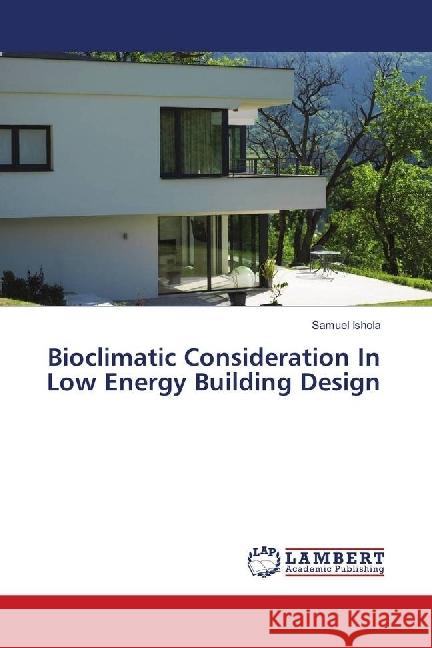Bioclimatic Consideration In Low Energy Building Design » książka
Bioclimatic Consideration In Low Energy Building Design
ISBN-13: 9786139841288 / Angielski / Miękka / 2018 / 136 str.
A civic centre is a place with diverse range of activities, recreation, culture, entertainment and administration. Its buildings form the centre for all society, groups and represent the image of the region and its residences. Such buildings should respond to the environment, as it provides pleasing enclosures for leisure, recreation, living and working to users. A critical look at how the biosphere with its climatic features consequently affects civic behaviours in the inner-city neighbourhoods of Akure is of interest. A two-prong approach is suggested in dealing with the situation. This involves a low-energy building scheme on the one hand, and an improvement in the socio-cultural lifestyle of the citizenry using a civic centre on the other. This thesis asserts that sustainable architecture plays a critical role in improving the quality of the built environment, and thus low energy designs has a definite role to play in its achievement. Architectural design with climate aims at keeping micro-climatic conditions in dwellings within the comfort limits, irrespective of the external conditions. Thus, the quality of the civic lifestyle has to be improved upon in this tropical city.











